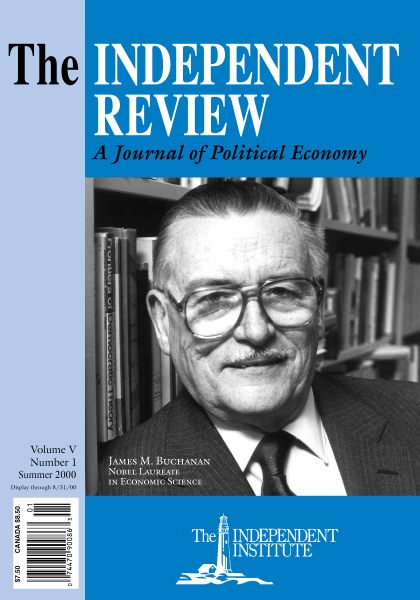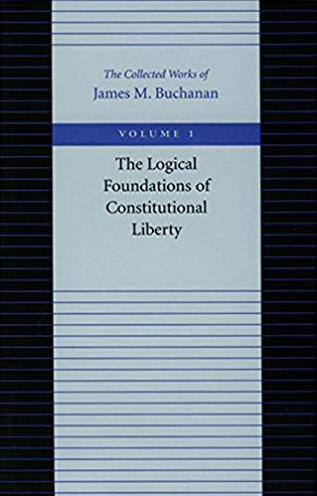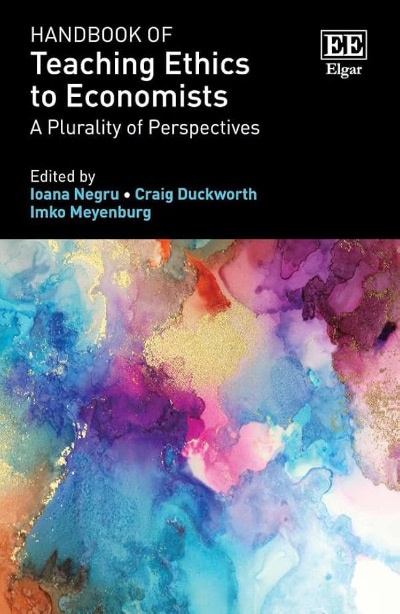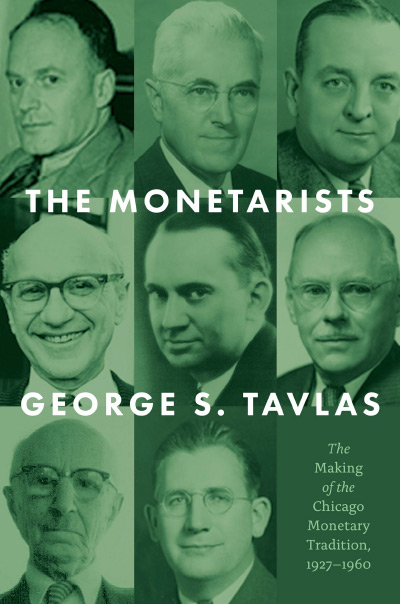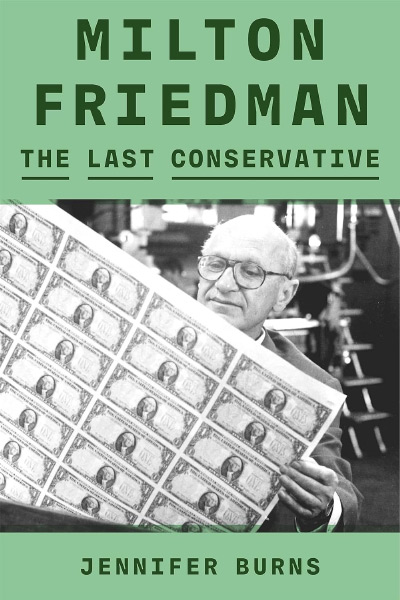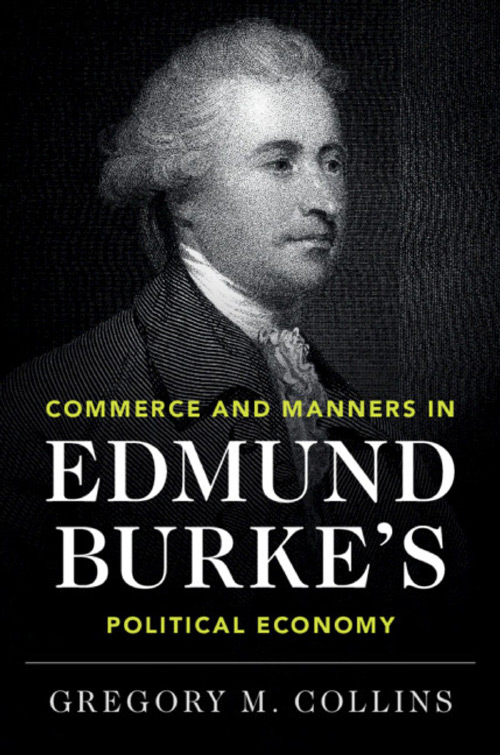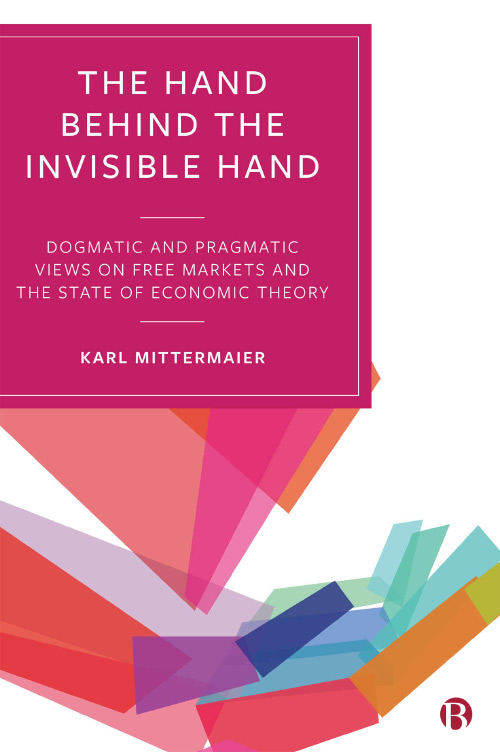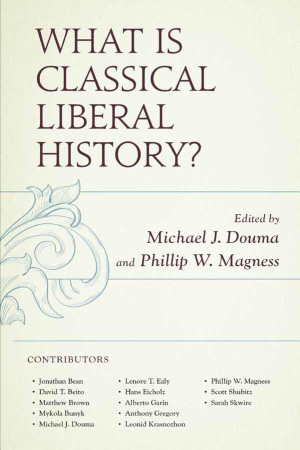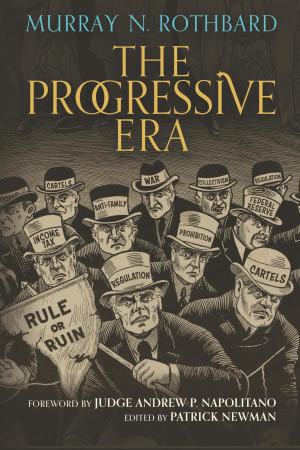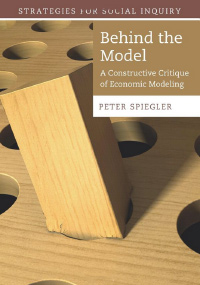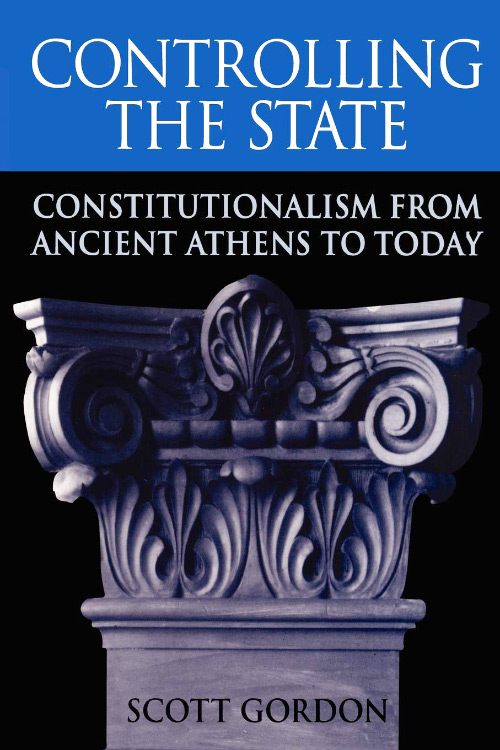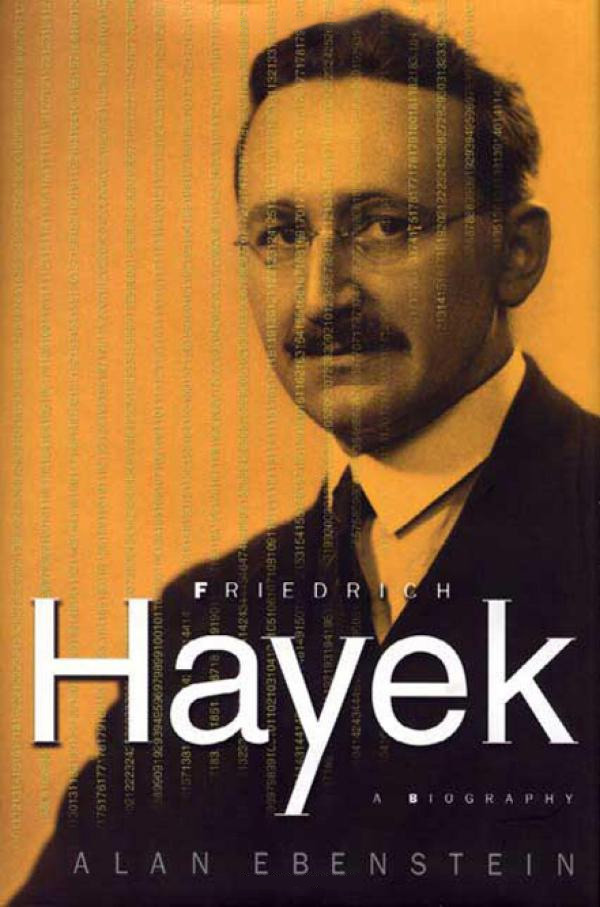This handsome volume, attractive in paper, typeface, and binding, is the first of twenty volumes of the not-quite-complete writings of James Buchanan (relatively ephemeral pieces will be left out). Apart from this volume and a final one containing an index to the series and a curriculum vitae, the collection gathers Buchanan’s work by topics. This introductory volume contains a wide-ranging sample of thirty-one articles on the job and responsibilities of economists, public choice, public finance, constitutionalism, and ethics. The editors have added a fourteen-page foreword and reprinted the 1986 press release of the Royal Swedish Academy of Sciences announcing the award of the Nobel prize to Buchanan.
One of Buchanan’s notable technical contributions finds an echo in this volume: his demonstration, contrary to economists’ conventional wisdom but in accord with the layman’s view, that debt finance, as opposed to current-tax finance, can indeed shift the burden of government spending partly from the present to the future. The issue cannot be settled by purely physical considerations, by the truism that resources are consumed when they are consumed and not later. The issue hinges, rather, on the subjective nature of “burden.” Persons who voluntarily buy government bonds do not suffer a burden merely because they thereby relinquish to the government the current use of the corresponding resources; after all, they judge the bond purchase at least as advantageous to themselves as any alternative use of their funds. The burden comes later and then falls on whatever people must pay taxes to service the bonds (or find parts of their wealth expropriated through inflation).
Even now, forty-two years after Buchanan published his Public Principles of Public Debt (1958), a full consensus from the academic discussion remains elusiveor such is my impression. Just how, for example, does government debt finance impinge on the formation of capital goods and human capital and thereby on future well-being? Room remains for a further expository job to clinch the outcome in everyone’s mind. Meanwhile, the whole discussion nicely illustrates John Harsanyi’s point that economists have more to do than empirical research and logical and mathematical exercises: their job also includes tackling conceptual-philosophical problems. It shows that framing and clarifying concepts need not be less important or intellectually challenging than, say, econometric work. Buchanan’s discussion also illustrates his own concern less with technical minutiae than with the big picture and fundamental questions.
Without scarcity and the attendant need to choose how resources are allocated, economics would not exist as a field of study. As Buchanan knows, however, this obvious fact does not make economics the science of allocating resources so as to maximize the utility (or whatever) obtained from them. Except, perhaps, in a socialist system of extreme and unworkable centralization, no question of overall resource allocation arises. Instead, each individual pursues his own purposes according to his own inclinations, abilities, knowledge, and resources. An economist is unlikely to be the individual’s or the business firm’s most plausible source of advice.
Parenthetically, Buchanan challenges the notion of definite utility functions and production functions existing even apart from persons’ and firms’ exploratory activities on markets. Life, at least as lived by persons whom Buchanan would admire, is largely a process of making oneself a better person and improving one’s utility function (if one clings to that technical term).
Since almost his earliest articles, Buchanan has rejected Kenneth Arrow’s worry about the impossibility of constructing a plausibly featured social preference function from the preference functions of individuals. An economist who shares Buchanan’s vision offers no advice on resource allocation to maximize social welfare or anything else. Not social choice but the framework of cooperation is the focus of his study. He investigates how alternative sets of institutions are likely to facilitate or impede individuals’ success in their own varied pursuits as they interact in search of gains from trade in the broadest sense of the term. Economics is thus the science of the coordination of widely decentralized decisions and activities. (One might add that itmore particularly, macroeconomics and monetary theoryis also the science of possible discoordination and its remedies.)
Extensions of economics go beyond investigating transactions on the market in the narrow, commercial sense of that term. They lead into political science and into ethics. In politics and in what he calls “constitutional economics,” Buchanan distinguishes between choice among particular, relatively specific actions or policy measures and choice among alternative sets of basic rules and institutions of the system. (One reprinted article concerns choice among alternative monetary constitutions.) Households, firms, and government policymakers (including voters) have to make choices on multiple levels. At a level of choice above that of yielding to the impulses of the moment, even individualsthe dieter is a standard exampleimpose constitution-like restrictions on themselves for their own longer-run good.
Hardly any specific policy measure can be literally Pareto optimal, benefiting some persons while harming no one. Accordingly, Buchanan prefers to conceive of specific measures as items traded on a kind of political market. People who lose from specific measures nevertheless acquiesce in them as a kind of price paid for other measures (perhaps including not-yet-formulated future measures) from which they expect more than compensating gains. Ideally, in a constitutional democracy, the political system is an instrument for implementing mutually beneficial and in that sense voluntary trades that nevertheless could scarcely occur on the narrowly commercial market (notably, deals involving “public goods”). Actual governments, of course, often are far from this ideal. Anyway, it is only on the constitutional level, in relation to institutions and basic rules, that the concept of Pareto optimality can find application.
A state of affairs from which there is no change that people would unanimously agree upon (or none that would command unanimous agreement “conceptually,” to use one of Buchanan’s favorite adverbs) is indeed Pareto optimal in the technical sense. This persuasive use of a technical term, however, is one of the few points on which the present reviewer must dissent. Almost any status quo involving a large number of persons is optimal in that sense, or so I conjecture; yet this does not mean that it is optimal in any ordinary sense of the word. While the concepts of Pareto-optimal situation and change do have their legitimate uses in abstract pedagogical exercises in price theory, they are misleading in policy discussions for the real world, even on the constitutional level.
The idea of mutual benefit demonstrated by agreement ties in with Buchanan’s “contractarian” political philosophy. Contractarianism, in his view (for example, pp. 466–67), is justificatory, not explanatory. It does not try to explain existing social or political arrangements by a historical social contract. Rather, the legitimacy or desirability of such arrangements, as well as that of changes in them, is to be tested by whether they could be the result of voluntary contractthat is, by whether they could command unanimous (“conceptually” unanimous) agreement. Curiously, Buchanan (pp. 301–4) sees a fellow contractarian in John Rawls, the author of A Theory of Justice (1971). Actually (as the philosopher R. M. Hare, for one, has noted), no persons are meeting behind Rawls’s famous “veil of ignorance” to negotiate a contract on the basic principles of social organization; behind that veil sits only Rawls himself, consulting his own intuitions.
Buchanan salts his contractarian rhetoric with scattered jabs at utilitarianism. Actually, his position differs from a kind of utilitarianism (described below) less in substance than in style and terminology. How does Buchanan judge what would be agreed upon? How can a social philosopher hope to distinguish between laws or constitutions that could and those that could not have been agreed upon under either actual or idealized conditions? The only plausible basis, I submit, is his judgment that people would consider the preferred arrangements as coming closer to an impartial conception of the good societyas more conducive to happinessthan alternative arrangements. In judging which among alternative arrangements might command a general consensus, the social philosopher must take into account the likely operating properties of the arrangements considered. But this consideration constitutes broadly utilitarian thinking and not some sort of distinct and irreconcilable contractarian thinking.
What has been called “rules utilitarianism,” or more aptly “indirect utilitarianism,” centers on the requirements of social cooperation. This approach recognizes the importance of mutually beneficial cooperation among individuals pursuing their own diverse goals and reaping the gains from specialization and contractual exchange in a context of peace and security. It appraises particular principles, rules, institutions, policies, and even habits, dispositions, and character types according to whether they are likely to uphold or to subvert social cooperation. Indirect utilitarianism calls for the opposite of making decisions according to perceived short-run case-by-case expediency. It accords quite well with Buchanan’s constitutionalism.
Interaction among individuals by voluntary agreement rather than coerced obedience is surely a prominent feature of a utilitarian conception of the good society. Decisionmaking procedure is itself properly one object of approval or disapproval, but it does not exhaust the content of the good society. Voluntary agreement is not itself the criterion of what to agree on. To value voluntary agreement and the democratic process in no way commits an economist or social philosopher to value whatever institutions or policies or results such processes may grind out. Meaningful agreement surely presupposes that individuals have some notions of what the alternatives are and, as far as institutions and policies are concerned, how those alternatives are likely to promote or to impede individuals’ success in their diverse ways of pursuing happiness. Surely economists and policy advisors have a role in contributing information of this sort.
Yet Buchanan ordinarily grants only a modest role to political economists and policy advisors. They are not actually to recommend any particular policy measure or constitutional reform; they have no business trying to impose their own values. No; they are merely to offer the modest hypothesis that the contemplated change could command a consensus in its favor. Reaching that consensus might of course require further dissemination of information about the change’s probable consequences, and extensive public discussion. The political economist stands ready to contribute his expertise; but general consensus, not his own opinion, remains the criterion.
Well, of course. No classical liberal and democrat wants to see a self-selected elite imposing its judgment on the masses. But to express an informed opinion is not necessarily to impose anything. Often the clarification of proposed reforms and their consequences requires not merely general public discussion but discussion among academic specialists. The participants can communicate more effectively if each one, instead of humbly adjusting his contribution to the conjectured views of his colleagues, forthrightly expresses his own judgment and his reasons for it. He hopes to convince his colleagues if he is right, but he is also willing to learn from them.
I see no operational difference, thenonly a difference in degree of forthrightness between phrasing one’s policy recommendation as a hypothesis about what could command ultimate consensus and clearly stating what one thinks. The latter in no way entails an elitist imposition of an unpopular policy on reluctant common people.
In fact, Buchanan is not afraid of expressing his own value judgments, even if he usually phrases them as hypotheses about potential agreement. One of his avowed values is the sovereignty of the individual (pp. 281–91). (I would argue, however, that individual sovereignty is not an ultimate value, because it is susceptible to being argued for on the basis of still deeper values.) Another of his avowed values is constitutional responsibility: individuals should adopt a constitutional attitude.
Buchanan urges his own values in remarks about the work ethic. People should work more and take less leisure than he perceives them to be doing. More input and output mean a more extensive market and so, as Adam Smith saw, a finer division of labor and greater overall productivity. This is an externalities argument for keeping noses to the grindstone. Curiously, Robert Frank developed an argument of opposite import: by working and earning and consuming as much as they do, people prod each other into a more intense rat race than they might desire if they could make a collective decision on the matter.
Buchanan’s building of bridges between his work ethic, the concept of externalities, and Smith’s proposition about the division of labor and the extent of the market is just one example of his knack for finding analogies or principles or generalizations that link topics that seem to be quite distinct. Finding such linkages is one of the main goals of science. Further examples occur in Buchanan’s article on “The Samaritan’s Dilemma,” which covers such topics as games of strategy, child-rearing, charity, welfare reform, and responses to airplane hijacking, terrorism, and disruptive student demonstrations.
Still more occur in his applications of Frank Knight’s notion of relatively absolute absolutes. Natural and social scientists may sensibly take some propositions as soundly established and as a basis for further work even while recognizing that at another level of discourse those supposed absolutes may indeed be examined or challenged. In some applications of microeconomics (to suggest an example of my own), it is a legitimate simplification to assume that prices adjust to market-clearing levels fast enough to make attention to frictions irrelevant; in macroeconomics, on the other hand, ob
stacles to rapid market clearing are close to the core of the subject. Similarly, R. M. Hare and some other moral philosophers distinguish between levels of discourse. Prescriptive ethics takes the maxims to be followed practically for granted and is simply concerned with their application. Critical ethics or metaethics, on the other hand, is concerned with the assessment and grounding of the maxims themselves.
Most understandably, perhaps, Buchanan applies his notion of relatively absolute absolutes to his constitutionalism, that is, to his distinction between decisions on the level of specific policies and decisions on the constitutional level. It applies to his insights into “the reason of rules” (to use the title of the concluding group of essays in this volume).
Applied to epistemology and to ethics, Buchanan regards the concept of relatively absolute absolutes as a third position between the extremes of objectivism or absolutism on the one hand and nihilism or relativism on the other. I understand this third position as little different from the fallibilism of Charles Peirce. It lies between the authoritarian position of someone who believes that he possesses an infallible pipeline to objective truth and the radical relativism of someone who denies that there is any such thing as objective truth. In the fallibilist view, it makes sense to seek objective truth about the physical universe and perhaps even about what is morally valuable and politically desirable. Yet no one is entitled to claim infallible possession of such knowledge. Each searcher contributes what he can, aware that his contribution is incomplete and perhaps wrong. Fallibilism calls for discussion open to the competition of all ideas, evidence, and arguments; and forthrightness advances discussion. Buchanan would agree, thenor so I hope, though I am not surethat the social philosopher or political economist is not acting ultra vires in laying outtentatively, of coursehis own conception of the good society.
Examples of Buchanan’s prescience appear in this volume. As long ago as 1962 he briefly formulated what later came to be known as the Lucas critique of macroeconomic policy evaluation (p. 225 n). He identified the phenomenon of political correctness in 1967 (p. 243), before that term became a household word.
One quibble may convey a suggestion for future volumes in this series. The editors fail to adjust Buchanan’s cross-references. Even when, as often occurs, Buchanan cites another article of his that happens to be reprinted in the current volume, the editors fail to tell the reader that he has the cited work already in his hands.
All in all, though, the project of Buchanan’s collected works is off to a magnificent start. Economists will have convenient and pleasant access to enduringly fruitful teachings.
| Other Independent Review articles by Leland B. Yeager | |
| Summer 1997 | Utilitarianism As a Public Philosophy |
| Spring 1996 | From Gold to the Ecu: The International Monetary System in Retrospect |

